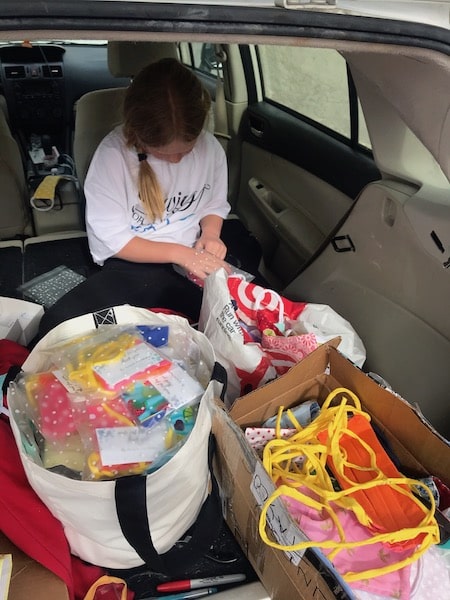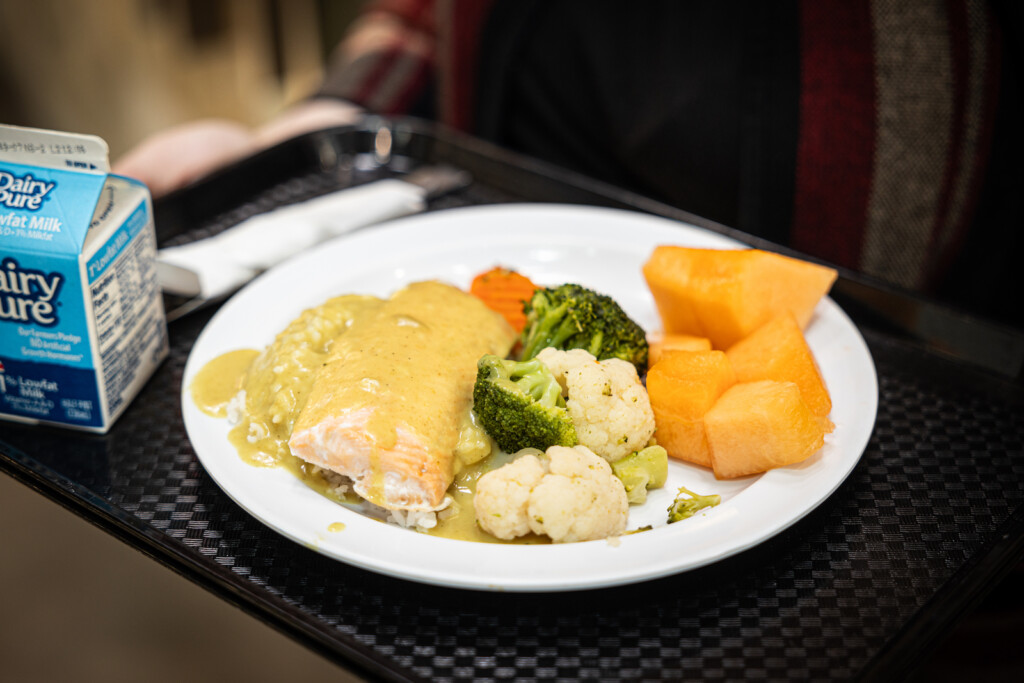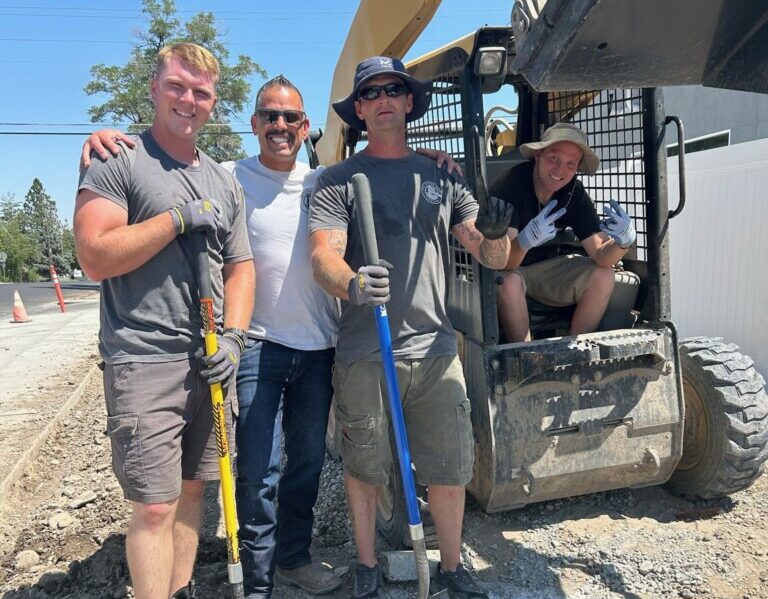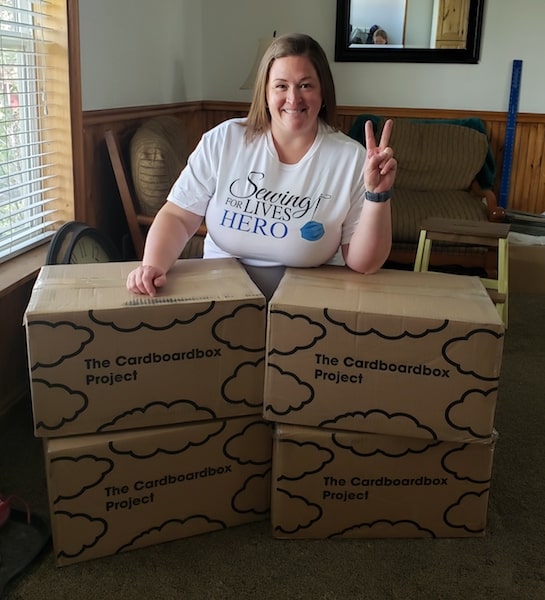
“I was just thinking to myself that it’s crazy that we’re in a position where we may not have the necessary ‘personal protective equipment,’ (PPE)” says Megan Jansen, Registered Nurse at Salt Lake Regional Hospital and founder of Sewing for Lives, “How are we going to protect our patients if we can’t even protect ourselves?”
Wanting to help her healthcare family during this covid 19 pandemic, Jansen reached out to the local community through facebook in March to get help making cloth mask covers to go over the n95 masks to extend their use. She wanted to preserve the integrity of the medical masks. “Most medical masks get soiled and you have to throw them out,” says Jansen, “You can’t reuse them.”
Within hours of creating her facebook page, Sewing for Lives, hundreds of people had signed up to sew mask covers, within days there were thousands. Currently there are close to 11,000 volunteers sewing mask covers. “What started out as a grassroots movement has just exploded,” says Jansen. “It’s nice to know when healthcare needs help, the community is there to help.”
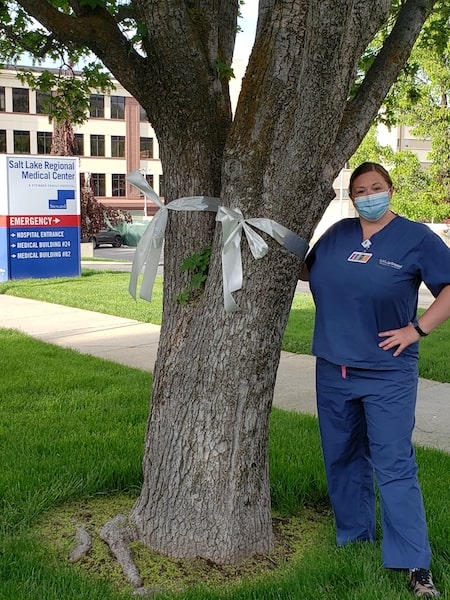
Following the Center for Disease Control, (CDC), guidelines, Jansen recruited volunteers to help design the 100% cotton mask covers and the directions for putting them together. To find out who was in need of mask covers, they reached out to the local health care facilities and first responders. Word spread quickly across the United States via Sewing for Lives’ facebook page. The Sewing for Lives volunteers have made and delivered over 111,000 mask covers to over 300 healthcare facilities across the nation.
“I’ve sewn 400 mask covers,” says Millie Burningham, local volunteer seamstress, “I’ve delivered them to Huntsman Center, Utah Healthcare Association and the YWCA.
One 100% cotton t-shirt can be used to make over 100 ties and the sleeves are used for a no-sew mask. “I hope to get more donations of unused t-shirts so we can continue to make more no-sew masks for the homeless population,” says Jansen, “They are quick and easy.”
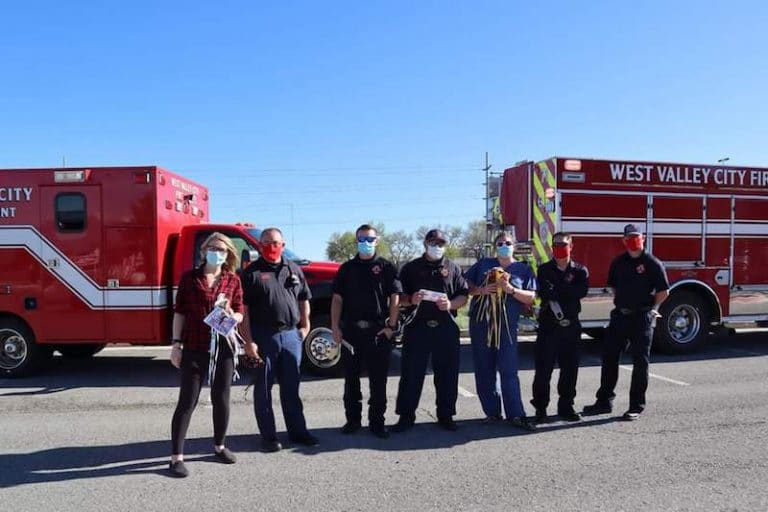
The demand is still high for mask covers. “We are actively searching for volunteer seamstresses,” says Jansen, “We’re looking for any skill set we can utilize in a volunteer.
When the pandemic slows down, Sewing for Lives plans to continue sewing multi use medical masks for nonprofit organizations.
Facebook Sewing for Lives COVID Response Team
